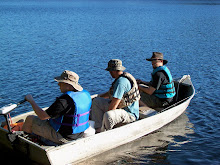Here is a quick list of how I'm planning to use the skills in my game:
Athletics - fairly straight forward, checks for swimming/climbing only in difficult situations
Riding - skilled riders can use bows from horseback, skill checks will be used for stunts while riding or riding in heavy combat etc...
Body Development - each slot in this skill gives bonuses to acts of strength or constitution, each slot in this skill nets the character 2 HP.
Stealth - used for sneaking, hiding, etc... obviously the target number will reflect armor worn, lighting conditions, ambient noise, etc...
Disguise/Deception - skilled thieves use this skill to lighten pockets, impersonate others, infiltrate garrisons, etc...
Mechanisms - this is the typical skill used to disarm mechanical traps, and pick locks.
Sailing - knowledge of sea craft and the ability to navigate them in open water
Engineering - the player should elaborate on what the character knows (building would net the ability to build siegecraft, bridges, walls, castles and stuff like that, or a character might be able to have engineering skill to build fantastical inventions of the sort that Leonardo Da Vinci would make if he was in a fantastical world - limited by resources and time).
Healing - skill in first aid and treating wounds, illness, etc.. with setting appropriate methods. Typically the use of this skill will accelerate healing and might allow for curing diseases.
Lores - these are too varied to go into detail. In general modify the skill check by the difficulty of the subject and also the information available. Access to a good or great library will make things easier than recalling something from ones past reading... Some of these like alchemy might allow the user to craft special potions, healing draughts, poisons. Tactics might be able to be used on the battlefield to counter flanking maneuvers etc... Gambling might allow a character to cheat, or detect cheating, and to outplay an opponent in a game of skill/chance.
Natural Lores - see above. In addition, the natural lores of survival will allow for the character to find important resources (water, food, shelter, etc...) in a specific setting (i.e. a desert warrior skilled in desert survival will be out of his element on a glacier or in the mountains). Herbalism will allow for a character to identify toxic plants, find healing plants, and maybe have other effects in a fantasy setting. Characters with weather lore might have the ability to detect and predict weather changes before others would.
Tracking, Influence, Trade - pretty self explanatory
Read Magic - this character has studied magical writings. This skill is necessary for wizards and non-wizard characters should have a good reason why they know this (some cultures may train all their people to read magical writing or maybe nobles will train their children to read magic). This skill can allow even non-wizard characters to read scrolls (with a chance of failure, modified by the character's skill level and the level of the spell - sometimes misreading a scroll will result in spectacular failures :). Wizards can read scrolls with no chance of misfire.
Analyze Item - this type of character with time and proper resources to analyze a magical item and determine its properties.
Languages - characters can take skill ranks in languages (beyond what they normally get for their INT). This may allow a character to learn a weird or ancient language (draconic, or demon languages, or maybe some lost culture).
Craft - this skill has many variants (smiths will be able to craft horseshoes, weapons, repair armor, make nails, etc..) BoyerFletchers can repair and make bows and arrows, brewers can brew up beer and spirits, there are lots of other good crafts (carpentry, shipbuilding, etc...). GM's must rule what resources are needed to repair or create goods.
Thorker Research
-
The PCs captured and returned to town a thorker. They paid a sage for
research on the critter, and this is what they got back.
Thorkers – probably more cor...
4 hours ago


No comments:
Post a Comment